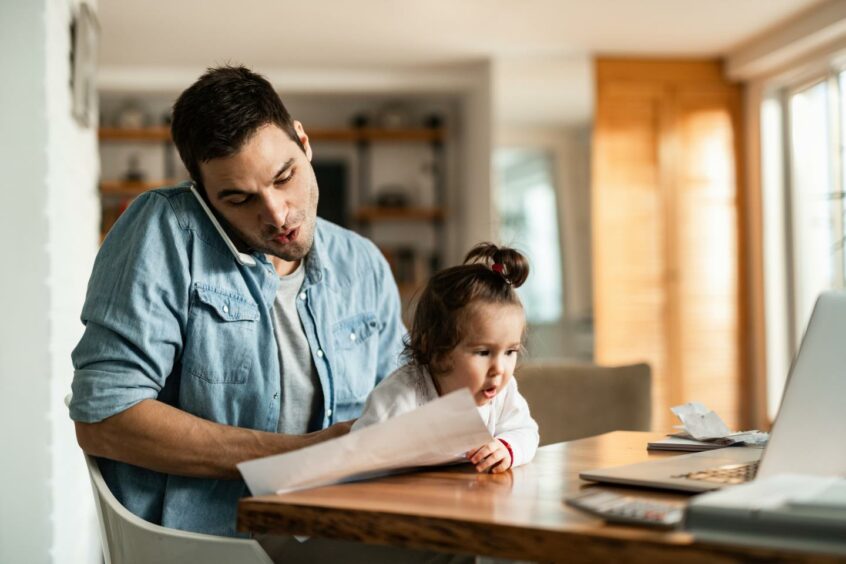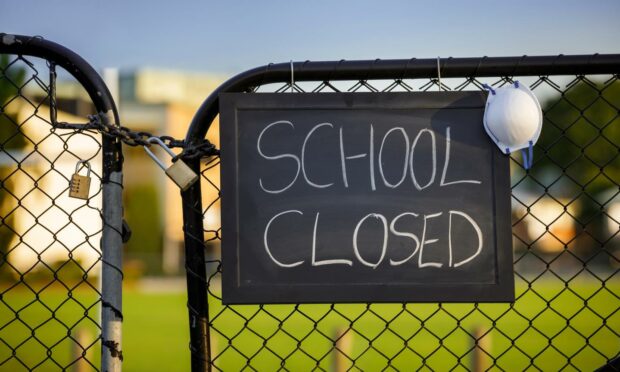With more of us back in the workplace, we need advice for balancing work and family care.
Recently, parents were in a bind when over 4,000 pupils across the north and north east were out of school unexpectedly.
They were haunted by questions like “What do I do about work?” and “Is it safe to leave my child alone?”
With public health experts warning about another spike as temperatures drop, more parents might find themselves in similar waters.
We’ve put together some advice to help working parents and carers when schools are closed and the kids are at home.
What to do about work?
If you have children who will be stuck at home for a short period, Citizens Advice recommends checking with your boss about flexible working strategies. Although many companies have returned to the office, some still have work-from-home options.
If yours doesn’t, ask if you can work at different hours. If your work is project-based, ask about a lighter workload temporarily or being shifted to an upcoming project.

There are two ways to ask about flex work: a statutory request or a non-statutory request. Statutory requests can take longer and require you to meet certain criteria, so check to see if you qualify before deciding which type of request is right for your situation.
What if your boss says flex work is off the table?
If flex work isn’t possible, there are a few types of unpaid leave you can look into:
- Parental leave: If you’ve worked for an employer for more than a year, you can get 18 weeks of unpaid leave for each child. Each parent gets their own period of 18 weeks, which covers all the time until your kids are 18. The law allows four weeks each year, but check with your HR department on their specific policy.
- Dependant’s leave: You can also ask for unpaid leave to look after someone that isn’t your child. This could be your partner, parent, or even a disabled neighbour.
Citizens Advice recommends communicating about leave in writing. That way you have a record of your request and your employer’s decision and reasoning in case something goes wrong.
There are also options if you are having to isolate or care for someone and need extra money. If you are a low-income worker and are told to self-isolate, you might be eligible for a £500 Self Isolation Support Grant from the Scottish Government.
You can use the online checker to see if you qualify and learn how to apply.
What are my childcare options?
If you can’t get flex work or a suitable leave package from your employer, you need to start thinking about child care.
When it comes to younger children, there are more options than usual. We put together a guide to the Scottish Government’s recent expansion of ELC provision to help you take advantage of what’s on offer.
But for older school-aged children, you’ll need to find other care while they’re learning from home. If you don’t have a preferred childminder in the area, or family members who can help out, you may need to consider if your child is old enough to be home alone.
Is it safe to leave my child alone?
Choosing when your child is ready to stay home alone is an important and difficult decision. Although the Scottish Government doesn’t have a law about what age your child can be left at home, it’s illegal to leave them in an unsafe situation.

The National Society for the Prevention of Cruelty to Children has clear recommendations on what’s safe for different age groups.
- Ages 0-3: Infants and toddlers need constant supervision. You shouldn’t leave them alone even briefly.
- Up to 12: The NSPCC doesn’t recommend leaving primary school children home alone either. They might not be mature enough to manage themselves on their own.
- Ages 12-16: Talk to your older children about what they are comfortable with. They may have reasons they don’t feel safe alone, no matter how old they are or how independent they seem.
The NSPCC also suggests that setting ground rules for while you’re away, giving kids a schedule, and other practical tips can make them safer at home alone.
We have also covered the debate on when children are old enough to be alone.
If you think a child is in danger or have questions about a situation, you can call the NSPCC at 0808 800 5000 or email help@nspcc.org.uk.
More from the Schools and Family team
‘Glib answers don’t cut it’ – Councillors slam disappointing Highland exam results
NSPCC bid to prevent child abuse on islands
‘There was a lot of hard graft and tears’: St Cyrus couple tell of near 40-year fostering career
